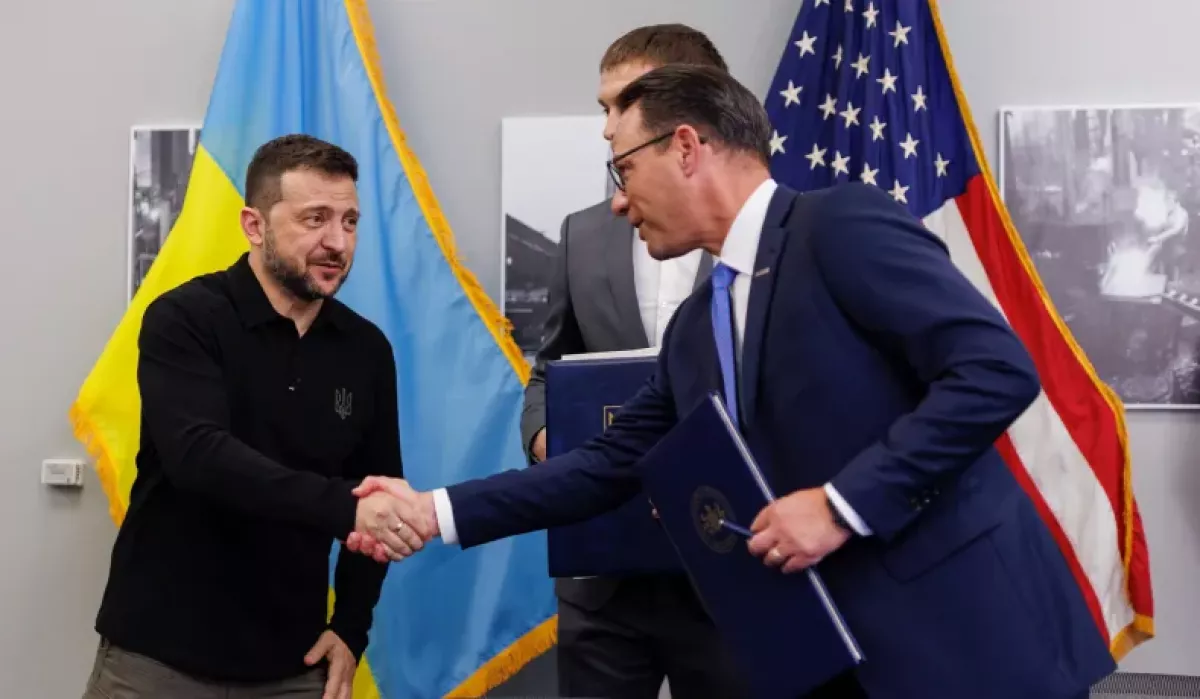US cities step up as global players amid federal uncertainty
In a recent piece, Foreign Policy explores the emerging trend of "subnational diplomacy" in the United States, where local leaders—like governors and mayors—play a growing role in international relations. This shift has become more pronounced amid uncertainties around federal foreign policy direction, as shown by the proactive climate action taken by over 400 U.S. cities and counties when former President Donald Trump withdrew the US from the Paris Agreement in 2017.
A more recent example is Ukrainian President Volodymyr Zelenskyy’s meeting with Pennsylvania Gov. Josh Shapiro during his US visit for the United Nations General Assembly. Together, they toured a Scranton-based factory that manufactures munitions for Ukraine, demonstrating how local officials are stepping into roles traditionally reserved for federal authorities.

Volodymyr Zelenskyy’s meeting with Pennsylvania Gov. Josh Shapiro
While Washington’s leadership has often fluctuated with changing administrations, subnational diplomacy provides a stable platform for international relations. Cities like Phoenix and New York are addressing global issues locally, from water scarcity to countering foreign influence. The Biden administration has bolstered this trend by launching a Subnational Diplomacy Unit (SDU) within the State Department. This unit acts as a bridge for US local leaders and foreign counterparts, organizing summits and initiating programs to embed diplomats within US mayoral and gubernatorial offices. Despite its success, the SDU is not yet fully established; legislation is required to ensure its permanence.
The article argues that subnational diplomacy adds layers to US diplomacy, sustaining international partnerships even if national policies change. This approach echoes strategies long employed by countries like France, Japan, and China, which have invested in subnational diplomacy to enhance central foreign policy. The Biden administration’s SDU has already fostered numerous local-level connections with Western Hemisphere leaders and could expand further with legislative backing, potentially allowing more US cities to engage multilaterally through organizations like the United Cities and Local Governments.
Foreign Policy suggests several ways to support subnational diplomacy, including federal legislation to institutionalize the SDU and increased involvement of US local leaders in international forums. The creation of a global network of US cities to address transnational issues, such as authoritarianism, could extend the influence of American local leaders on a global stage. The article also proposes an innovation fund, supported by public and private sectors, to empower smaller US cities to engage internationally, enhancing diplomatic diversity.
Ultimately, subnational diplomacy provides the US with more robust international engagement. In an era where the federal government’s global stance may vary, local leaders ensure that the US maintains a meaningful presence on the world stage.








